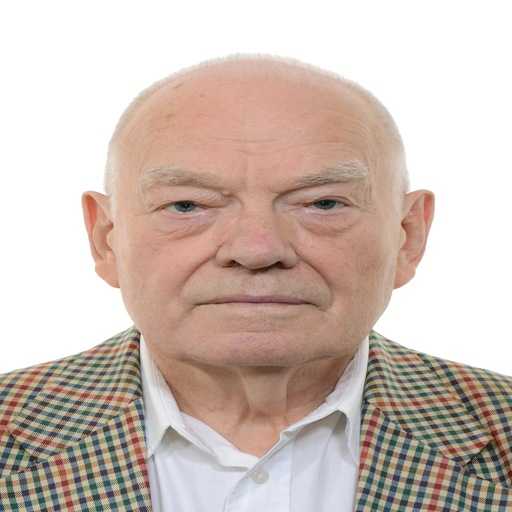
Nikolay Didenko
Doctor of EconomicsProfessor of Higher School of Business Engineering Peter the Great St. Petersburg Polytechnic University
English proficiency:
Fluent
Research projects:
- The impact of the interaction of the real and monetary sectors on crises in the global economy.
- The influence of global risks on the internationalization of scientific and technical activities of TNCs in developed countries.
- Factors of innovative development of the secondary sector of the world economy.
- Assessing the role of the banking sector in the economic growth of countries around the world.
- Choice of a model of international trade in Russia in modern conditions.
- Development of tools for modeling the global gas market.
Research topics:
- Selection of the main trends in trade in goods and services in modern conditions of development of the world economy.
- Selection of the main trends in the development of international investment.
- Assessing the impact of modern trends in international investment on the economic interests of the country
- Selection of a model for the formation of investment portfolios in conditions of economic instability and uncertainty of the global economy.
- Formation of new organizational forms of business adequate to competitive conditions during the restructuring of global technological chains.
- Forecast for the restructuring of global transport and logistics routes and infrastructure in the context of global risks.
- Development of a mechanism to ensure the economic aspects of the countryʼs security in the context of global risks.
- Development of methods and tools for assessing the impact of geopolitical contradictions of countries on the world economy.
- Development of methods for assessing the likelihood and expected consequences of trade wars at the global and regional levels.
- Assessing the effectiveness of international economic organizations in the system of regulating the processes of the world economy.
- Assessing the effectiveness of the countryʼs participation in interstate economic associations such as BRICS, ASEAN-5
- Development of principles and methods for early identification of risk factors in the global economy.
Assessment of the prospects for the development of digital currencies of the central banks of countries.
- Selection of the main trends in the development of global labor markets.
- Determination of the main trends in internalization and the role of TNCs in the field of scientific and technical activities.
- Determination of the main trends in global high-tech markets and prospects for the development of markets in individual countries.
- Assessing the effectiveness of international mechanisms for managing climate change.
- Development of a methodology for short- and long-term forecasts of changes in the countryʼs position in the global economy.
- Development of principles and methods for assessing changes in the model and structure of the countryʼs foreign economic relations in the context of global challenges.
- Development and justification of strategic directions for the development of the countryʼs foreign economic activity in the context of global challenges.
- Development of criteria and methods for assessing the impact of growing social inequality and falling incomes on the long-term growth of the world economy.
Field of study:
Economics and business
Research interest:
Application of mathematical methods and models for analysis and forecasting of processes and objects of the world economy in the context of the main economic trends of the modern world economy.
Research highlight:
- Didenko N.; Skripnuk D.; Barykin S.; Yadykin V.;…; Moshkin I. Impact of Carbon Emission Factors on Economic Agents Based on the Decision Modeling in Complex Systems. Sustainability. 2024, 16, 3884. https://doi.org/10.3390/su16103884 (Scopus, Q1)
- Didenko N. Modeling the global nickel market with a triangular simultaneous equations model. International Journal of Systems Assurance Engineering and Management. 2020. 11, pp. 119–129 (Scopus, Q3).
- Didenko N.; Skripnuk D.; Barykin S.; Yadykin V.;…; Moshkin I. Impact of Carbon Emission Factors on Economic Agents Based on the Decision Modeling in Complex Systems. Sustainability. 2024, 16, 3884. https://doi.org/10.3390/su16103884 (Scopus, Q1)
Specific requirement:
The main requirements for graduate students are related to the use of mathematical modeling tools for the analysis of processes and objects in the global economy.
The graduate student must have (a) knowledge of the basic theories of the development of the world economy and international economic relations and (b) knowledge in the field of economic and mathematical modeling.
Main publications:
- Didenko N.; Skripnuk D.; Barykin S.; Yadykin V.; …; Moshkin I. Impact of Carbon Emission Factors on Economic Agents Based on the Decision Modeling in Complex Systems. Sustainability. 2024, 16, 3884. (Scopus, Q1)
- Didenko N.; Skripnuk D.; Merkulov V.; Kikkas K.N.; Skripniuk K. Methodology for the Formation of a Digital Model of the Life Cycle of an Offshore Oil and Gas Platform. Resources, 2023, 12, 86. https://doi.org/10.3390/resources12080086 (Scopus, Q2).
- Skripnuk D.; Didenko N.; Gazizulina A.; Kikkas K.N.; Skripniuk K. Methodology of a Circular Economy in a Specific Territory. //Sustainability. 2023, 15(13), 10363. https://doi.org/10.3390/su151310363 (Scopus, Q1).
- Didenko N., Skripnuk D., Ilin, I., Tanichev A., Kulik S.V. An economic model of sustainable development in the russian arctic: The idea of building vertical farms. //Agronomy, 2021, 11(9), 1863 (Scopus Q1; WoS Q1).
- Didenko N., Skripnuk D., Kikkas K., Kalinina O., Kosinski E. The impact of digital transformation on the micrologistic system, and the open innovation in logistics. //Journal of Open Innovation: Technology, Market, and Complexity, 2021, 7(2), 115. (Scopus, Q2).
- Didenko N.I., Romashkina G.F., Skripnuk D.F., Kulik S.V. Dynamics of trust in institutions, the legitimacy of the social order, and social open innovation //Journal of Open Innovation: Technology, Market, and Complexity, 2020, 6(4), pp. 1–24, 111. (Scopus, Q2).